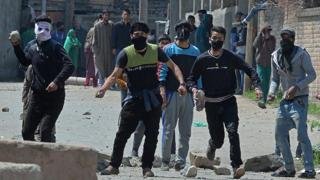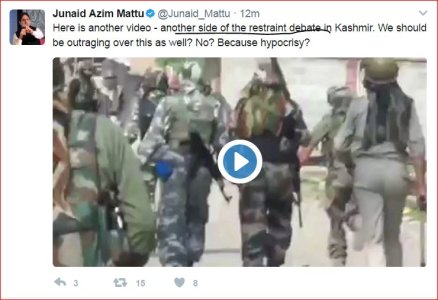boomboomcheema
First Class Star
- Joined
- Aug 18, 2011
- Runs
- 3,892

Mehbooba Mufti, chief minister of the troubled state of Jammu and Kashmir, has made a huge political statement by calling for the cancellation of the election in Anantnag on April 12. It is a seat she vacated as Member of Parliament and her brother, Tasaduq Mufti, is the PDP candidate.
Mehbooba’s call comes on the heels of the violent bypoll in Srinagar where eight were killed and only 7% cast their vote. The meagre turnout, by no means, reflects a popular mandate and many would argue that the Srinagar election should be declared null and void, for the winner – with a little over 3.5% of the vote – is clearly not the people’s representative.
If Anantnag votes – as it is slated to in less than 48 hours – the percentage could even be lower because it falls in South Kashmir, the region which was rocked with unprecedented protests in July last year after the killing of militant commander Burhan Wani. South Kashmir is – was would be more appropriate – the PDP’s stronghold and a single-digit voter turnout would be a direct referendum on Mehbooba’s legitimacy as chief minister.
The large scale protests on Sunday can be interpreted as a rejection of the democratic process by the Kashmiris. To be more precise, it is a rejection of mainstream politics, including of the National Conference (NC), which once towered over the state through its founder, Sheikh Abdullah and subsequently through Farooq Abdullah, who was in the fray in the bypoll.
Disturbed by the violence, Farooq at one point, while blaming Mehbooba for not providing security and creating a conducive environment, said, many NC workers were unable to come out and vote.
The frightening away of party cadre – which could well be repeated in Anantnag – is a serious development. The village-level worker is the best political thermometer and officials in Srinagar – who do not wish to be named – reveal that the workers did not want to come out in defiance of the boycott call issued by the separatists. They did not want to be ‘marked’ and so, preferred to lie under.
Successive governments in New Delhi have interpreted large turnouts – like the one in 2014 – as a sign of normalcy; as Kashmiris embracing ‘India’. Will the government now analyse the 7.14% as a rejection of anything ‘Indian’?
http://m.hindustantimes.com/opinion...hing-indian/story-gJ38rJG8X61VwjQODvC8LN.html
It's often said that by the Indians that Kashmiris love India and hence come out to open in large numbers everytime. So what does the 7% turnout suggest now?
As the article suggests, the Kashmiri people have rejected everything Indian.







 .. roof roof barking as usual but things remain the same as usual....
.. roof roof barking as usual but things remain the same as usual.... 


